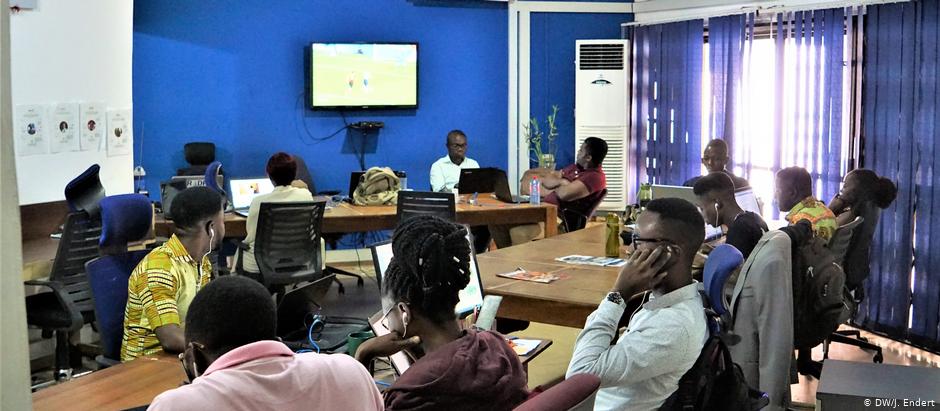DIGITALISING EDUCATION IN GHANA – the way forward
- Advertisement -
INTRODUCTION
Over the years the Government of Ghana has taken certain bold steps in promoting Information and Communication Technology (ICT) Education in Ghana.
- Advertisement -
For instance, during the era of former President H.E John Agyekum Kufour he had built ICT labs across some Senior High and Junior High Schools in the country, former President H.E John Evans Fifii Atta Mills did Similar projects executed by his predecessor and followed by former President H.E John Dramani Mahama who did similar but the most significant was the procurement and distribution of thousands of laptops to some Senior High School students and teachers.
- Advertisement -
The current President, H.E Nana Addo Dankwa Akufo-Addo has also embarked on similar projects done by his three predecessors and notable among them is the installation of Wireless Fidelity (Wifi) or wireless Internet access across almost every Senior High School in Ghana.
The efforts by all these leaders are commendable as far as ICT education in Ghana is concerned however, access to ICT education in Ghana remains very low compared to her counterparts.
The purpose of this article is to espouse my take on what Ghana should do to promote continues learning among Pre-Tetiary
Students and Junior High Students in the midst of global uncertainties
ICT: THE BEDROCK OF E-LEARNING
The importance of ICT education cannot be underestimated hence the need for us as a nation to take keen interest in channelling our resources in the promotion of effective ICT education in our schools especially Senior High Schools.
The benefits of the investment in ICT education are very enormous especially in the era of global challenges such as the deadly Corona Virus Disease (Covid-19) where almost every transaction is done online to reduce the spread of the Covid-19
To mention but few examples, most universities and polytechnics moved their lessons delivery online (E-learning) where students at the comfort of their homes attend lectures and do assignments, write quizzes and end of semester exams online.
University of Education, Winneba was one of the first universities in Ghana to have successfully facilitated online learning across all levels including final year students at the time. They even went further to conduct successful graduation of the 2020 graduands at the time.
This wouldn’t have been achieved if the University management failed to invest in ICT infrastructure.
Now the big question here is, is the schools at the Senior and Junior High levels able to do the same learning and assessment online as done by the universities?
Certainly, “NO” is the answer. No because we failed as a nation to do enough investment in ICT infrustructure across the Junior and Senior High Schools in Ghana.
- Advertisement -
THE WAY FORWARD
Currently all Junior High Schools and Senior High Schools are learning face to face (the traditional way) in the midst of the Covid-19 pandemic.
They cannot simply do the hybrid learning because of the unavailability of adequate ICT tools and gadgets among teachers and students at these levels.
Another barrier preventing the efficient delivery of lessons online in our senior high schools is the law that bans students from owning mobile phones, tablets etc.
In my opinion, to be able to effectively digitalize education at the Senior High level, we must begin the necessary national dialogue on how we can safely allow students in our various Senior High Schools across the county use modern ICT tools and gadgets that will not have any serious negative impacts on them rather than to say that we will not allow them use these devices at all.
The world today is now driven by information technology and we cannot progress as a nation if want to continue the traditional way of doing things.
Elsewhere in the world, students from High Schools can develop softwares and other sophisticated technological devices due to enough exposure to these devices.
Our very own students can equally do it and even do it better than their foreign counterparts.
If we can properly roll out one student one laptop, one smartphone or tablet policy we shall not only benefit from only teaching our students online but also help them to become self job creators which would in the long run reduce the country’s unemployment rate.
It may take time for us to reach there but let us not forget that ‘a journey of thousand miles begins with a step.’ Therefore we must begin the enrolments of this policy now and gradually we shall also get there.


By Mark Kojo Medegli. markkojomedegli28@gmail.com
0247919783
- Advertisement -


